
Articles by Kenya
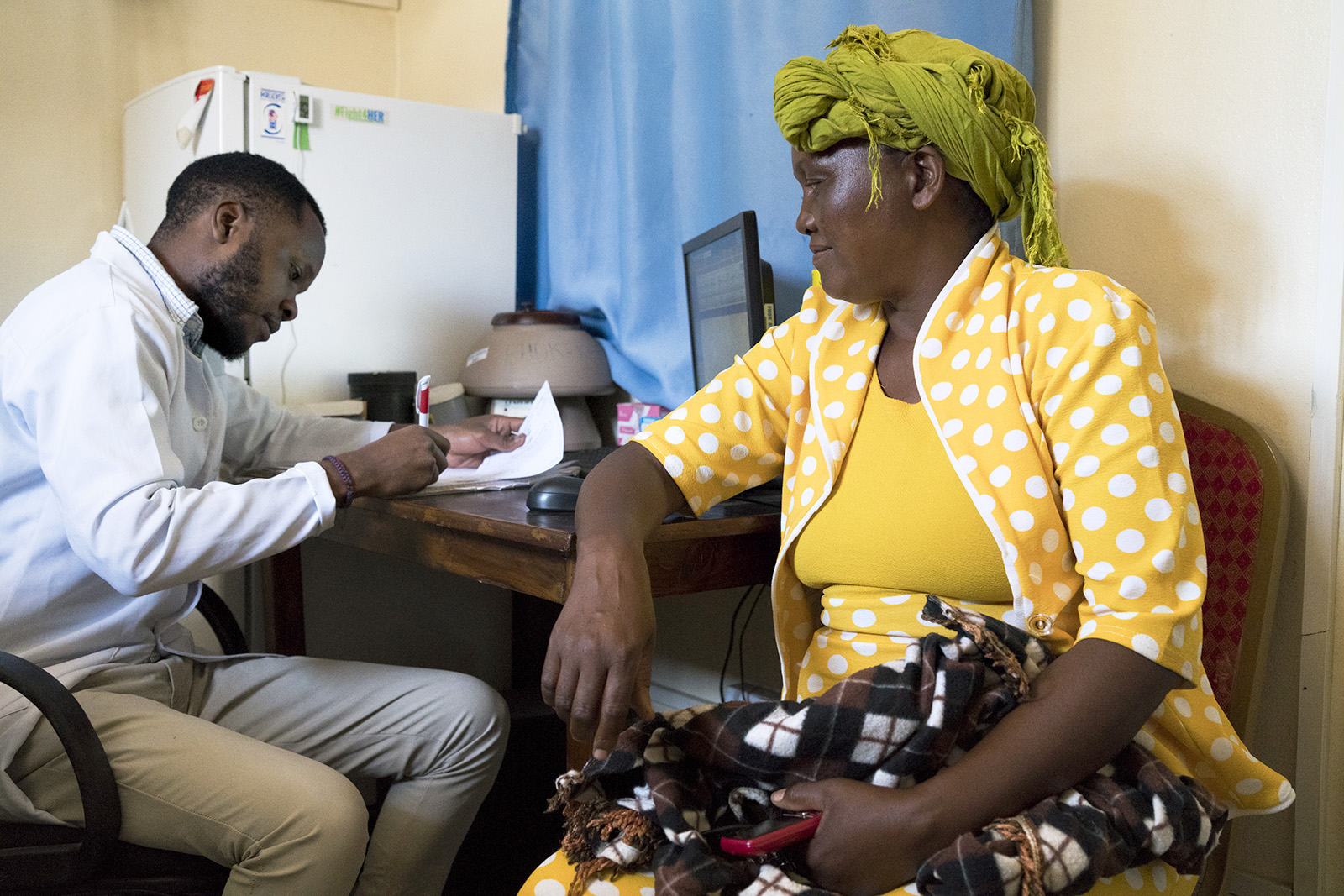
The Global Gag Rule and its impact in Kenya
Single mother of five, Mary Mukuhi, is a businesswoman and family planning volunteer in one of Nairobi’s biggest slums, Kibera. Over the last two years she has seen first-hand the impact of the Global Gag Rule (GGR). Since GGR was re-introduced by this US administration on January 23rd 2017, Mary says she has seen a rise in sexually transmitted infections (STI’s), especially syphilis, as well as an increase in unsafe abortions. The GGR denies U.S. funding to organizations like Family Health Options Kenya (FHOK) if they use any money to provide abortion services, counselling or referrals. It means that critical funding is blocked for other sexual and reproductive services like contraception, maternal health, and HIV prevention and treatment. Healthcare services reduced or forced to close Mary, who has been a volunteer for FHOK’s Family Care Medical Centre in Kibera since 2012, says that one of the consequences of GGR in Kenya was that it had hindered “getting commodities and supplies like condoms, IUDs” and that people had lost their jobs. With a population at approximately 180,000, Kibera is East Africa’s largest slum, a bustling valley of tin roofs that cover small homes, schools and offices, with inefficient or non-existent sewage systems many people rely on getting access to sexual health services. Before the Global Gag Rule Before GGR, FHOK was able to provide three or four outreach clinics a month in different parts of Kibera where they distributed supplies, did tests and conducted screenings etc. “Now we go once a month,” she said. It is not just the mobile outreach in Kibera that has been hit by the cuts; other services across the country have been reduced or closed. Before GGR was implemented FHOK reached about 76,000 people annually with its mobile outreach clinics, said Amos Simpano, FHOK’s Director of Clinical Services. In rural areas, outreach clinics can be even more important because often no other health providers exist. In some places the mobile services offer general care, check-ups, cervical cancer screenings, HIV testing, family planning advice and contraception. Amos said that when GGR hit, the outreach clinics stopped. Emergency funding With the help of funding from IPPF’s GGR emergency grant, outreach services were able to start again but only at about half capacity. Today, Amos Simpano estimates about 35,000 people have access to healthcare through outreach programmes. In total FHOK lost about USD $1.5 million for integrated health projects for the most marginalized communities to prevent and treat HIV. Two clinics closed. Another seven are at risk of closures and are currently operating with reduced services. GGR has meant 20 staff redundancies and decreased access to consortium funding and partnerships Abdillahi Ali, the clinical officer at the Family Health Options Kenya office in Malindi, a big town in coastal Kilifi county, south east of Nairobi, says the impact of redundancies has been tough for everyone. Before the GGR, Abdillahi recalls, the clinic had a ‘big team’. Once the GGR hit, though, a nurse, a driver, a counsellor and the receptionist were all made redundant. Today everyone left fills in the gaps, “Now you have to work as a nurse and receptionist,” said Abdilllahi of the strain. “At the end of the day, the quality of service is compromised.” Still, the staff carry on, undeterred. Keeping young people engaged Another way that FHOK stayed involved in the community in Malindi was through the youth center which opened in 2013. The center is a place for young people to get information and access to contraception. FHOK spread the word about the center through a Facebook page, word of mouth and peer educators. However, with the GGR, FHOK lost funding for the small stipends they gave to the peer educators. It was a hard time, but now with the mitigation funding, things are getting a little better. Twenty-three-year-old Mahmoud Dzombo, still works as an FHOK peer educator and hosts events for young people. He told us that his last session attracted 30 people who want to learn and talk. “It’s very sensitive, but at the end of the day, we have to,” said Abdillahi of providing information on contraception, including emergency contraception. “My role is to talk to young people,” Mahmoud explained. He adds that there is a big problem with teenage pregnancy in Kilifi. There’s a high rate of sex work in Maldini, according to Abdillahi, and one of the many reasons the FHOK clinic in town is so valuable is that it will offer family planning and HIV testing without judgment. Indeed, at times the women will bring in the men to get tested as well. He’s glad to be able to continue to provide these unique services even if they are stretched at the seams.
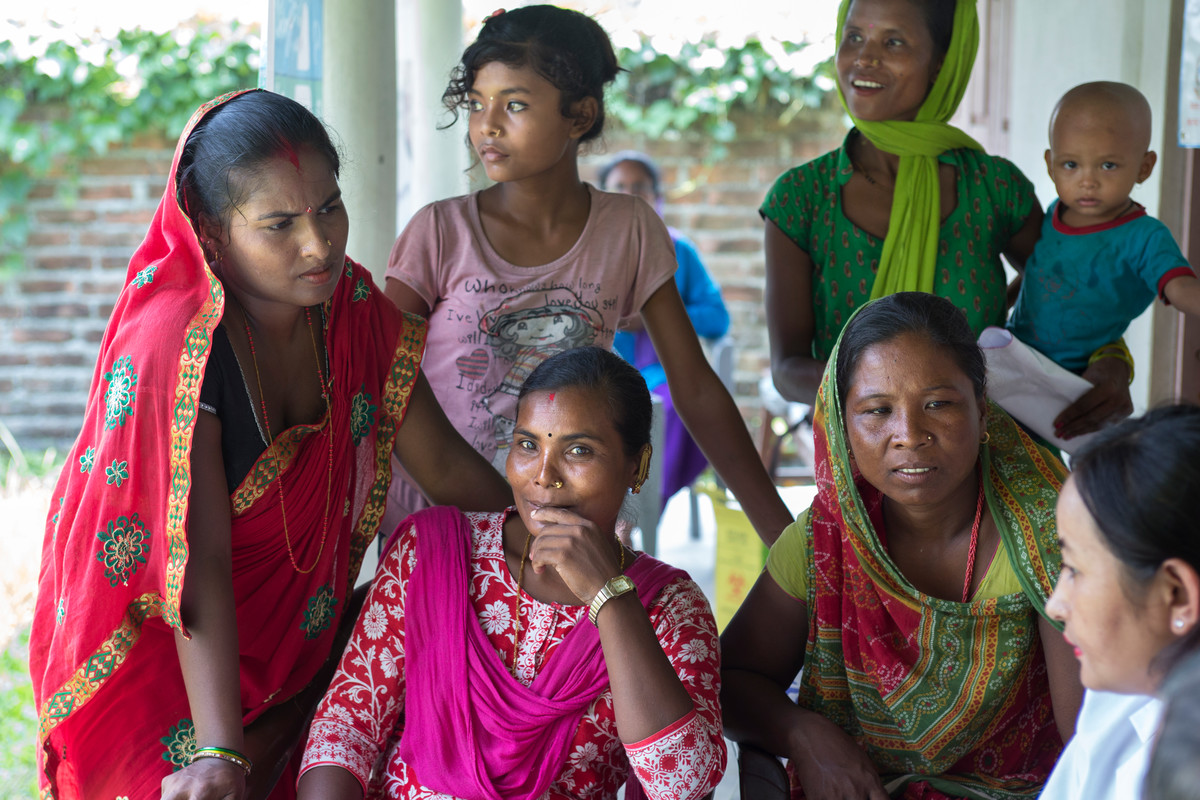
Leaving no one behind: Universal health coverage and sexual and reproductive health and rights
Universal health coverage means ensuring every person has access to quality, affordable health services and plays a pivotal role in achieving global development targets. Healthy populations can better contribute socially and economically, while poor health is a major driver of poverty. Universal access to sexual and reproductive health care services is identified in the Sustainable Development Goals as an essential contributor to ensuring healthy lives and promoting well-being for all at all ages. IPPF, together with the London School of Hygiene and Tropical Medicine, undertook a literature review looking at progress to date in and challenges to achieving universal access to sexual and reproductive health and rights. The review, Leaving no one behind, is illustrated with case studies on Afghanistan, Cambodia, Kenya and Sudan. Supported by the Japan Trust Fund.
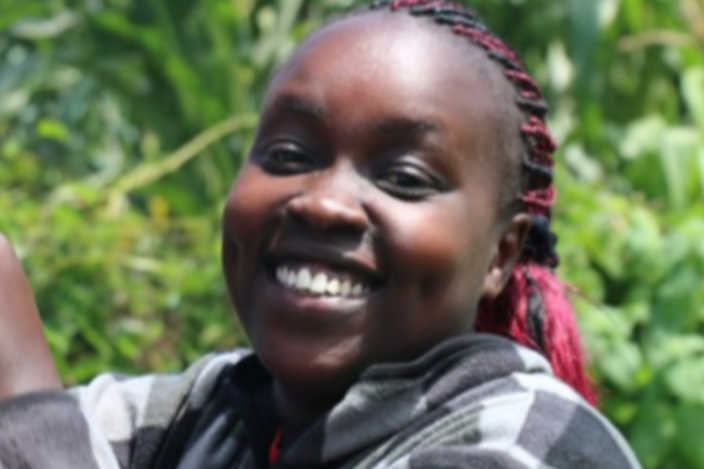
“The split-second decision that saved me” – Teresia’s story
One day, while going about her daily activities in her community in Nakuru, Kenya, 26 year-old Teresia Wangui met a group of people providing medical services. They seemed to be focusing on women, and since she had a few minutes to spare, she made her way to the tent where they were working. This decision would save her life – literally. The Nakuru branch of Family Health Options Kenya (FHOK) was offering mobile cervical cancer screening services at the medical camp. FHOK is the IPPF Member Association in Kenya. “When I approached the tent, I found out that they were offering free cervical cancer screening services, and I decided to get tested too because I felt that I needed to know my status,” said Teresia. It was a decision that paid off – Teresia was found to have precancerous lesions. To help allay the development of these lesions into cervical cancer, she was referred for cryotherapy treatment for precancerous cells on the cervix. "I'm glad that I was able to be screened and receive treatment" “Had I not made that split-second decision to pop into the medical camp offered by FHOK, I probably would not be here sharing my story with you today. I'm glad that I was able to be screened and receive treatment. I would advise all ladies to go for cervical cancer screening, even if you are young and have not had children, since it affects everyone who is sexually active. "I would also like to tell my fellow women not to wait for services to be brought to their doorstep. Cervical cancer screening services are also offered in many clinics, so it is your responsibility to undertake regular checks. You are the one responsible for your own health,” said Teresia. FHOK implemented the Cervical Cancer Screening and Preventative Therapy (CCS&PT) initiative in different parts of the country through its static clinics and outreach service delivery points.

Japan Trust Fund
The Japan Trust Fund (JTF) represents a visionary partnership that began in 2000 between the Government of Japan and IPPF. Together, we invest in programmes that prioritize health equity, gender equality, and human security for all. Traditionally a driving force behind IPPF's efforts to support the integrated HIV prevention programmes of our Member Associations in Africa and Asia, JTF has adjusted to reflect changing global health priorities. We attach importance to universal access to sexual and reproductive health and rights - an essential contributor to universal health coverage and the global development goals. These projects have transformed the lives of people most vulnerable to HIV and high risk of maternal and child mortality. Equally, it ensures that as a donor, the GOJ’s response to HIV remains people-centred and contributes to human security.
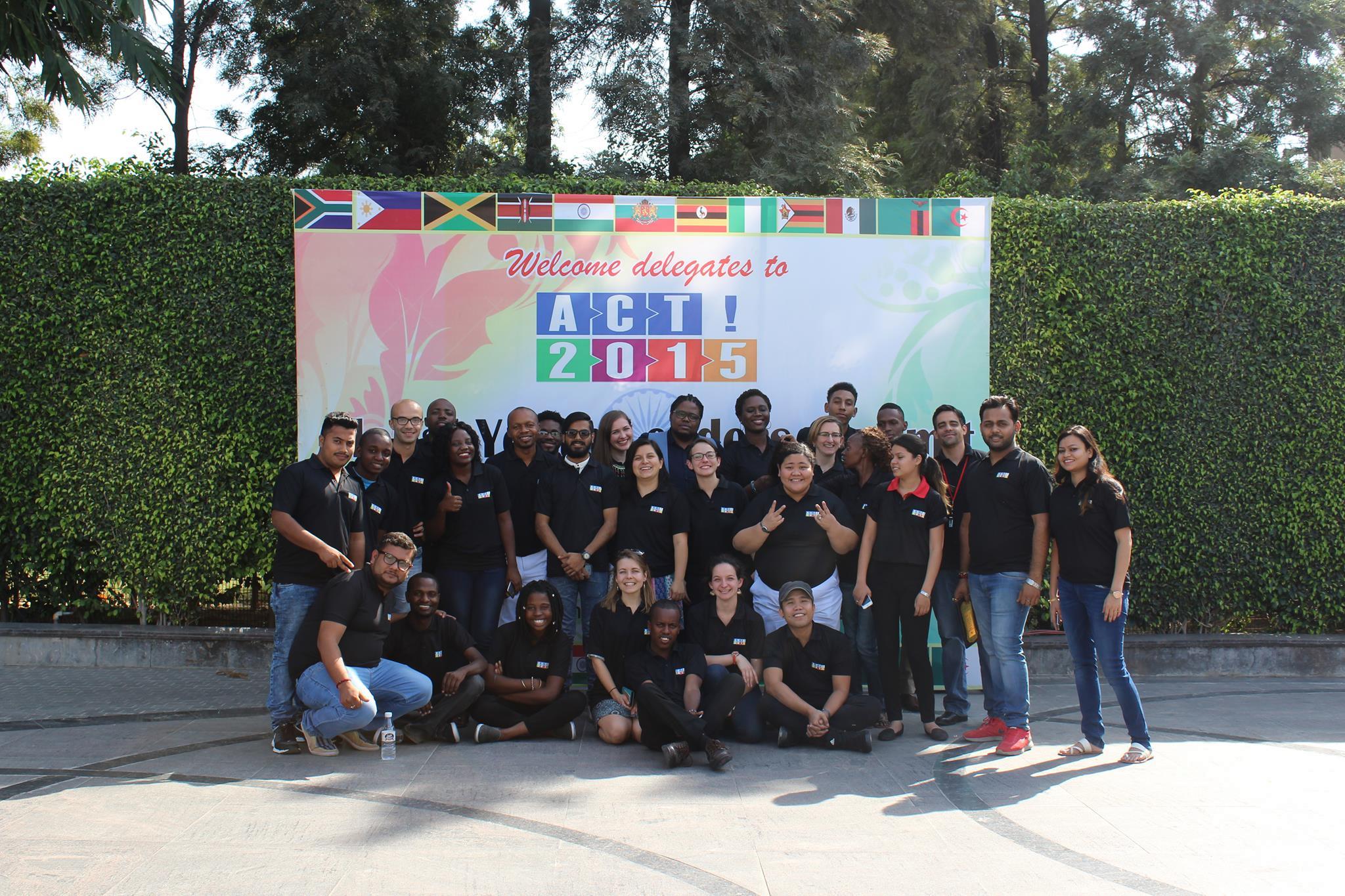
ACT!2030
IPPF collaborates with UNAIDS and The PACT to implement ACT!2030 (formerly ACT!2015), a youth-led social action initiative which engages young people in 12 countries with advocacy and accountability around the Sustainable Development Goals (SDGs) and other SRHR agreements/frameworks. ACT!2030 was initiated in 2013 as a way to increase youth participation in the negotiations leading up to the adoption of the post-2015 development agenda, and for two years focused on establishing alliances of youth-led and youth-serving organisations in 12 countries across the world. The project is currently in Phase 4, which runs until the end of 2017, and aims to establish youth-led, data-driven accountability mechanisms to ensure youth engagement with the implementation of the SDGs and build an evidence base for advocacy. Ultimately, Phase 4 of ACT!2030 seeks to identify, assess and address key policy barriers to young people’s sexual and reproductive data by using existing data, supplemented by youth-collected data, to advocate and lobby for policy change. This phase involves four main activities: indicator advocacy (persuading decision makers to adopt youth-friendly SRHR and HIV indicators, including on things like comprehensive sexuality education (CSE) and access to youth-friendly services, into national/global reporting mechanisms); evidence gathering (creating national databases on quality of and access to youth-friendly services and CSE); communications (transforming this data and evidence into communications pieces that can be used to advocacy and lobby at national and international level); and global exchange (facilitating global visibility to share advocacy and engagement learnings and increase youth-led accountability in global and regional processes). ACT!2030 is implemented by national alliances of youth organisations in 12 countries: Algeria, Bulgaria, India, Jamaica, Kenya, Mexico, Nigeria, Philippines, South Africa, Uganda, Zambia and Zimbabwe.
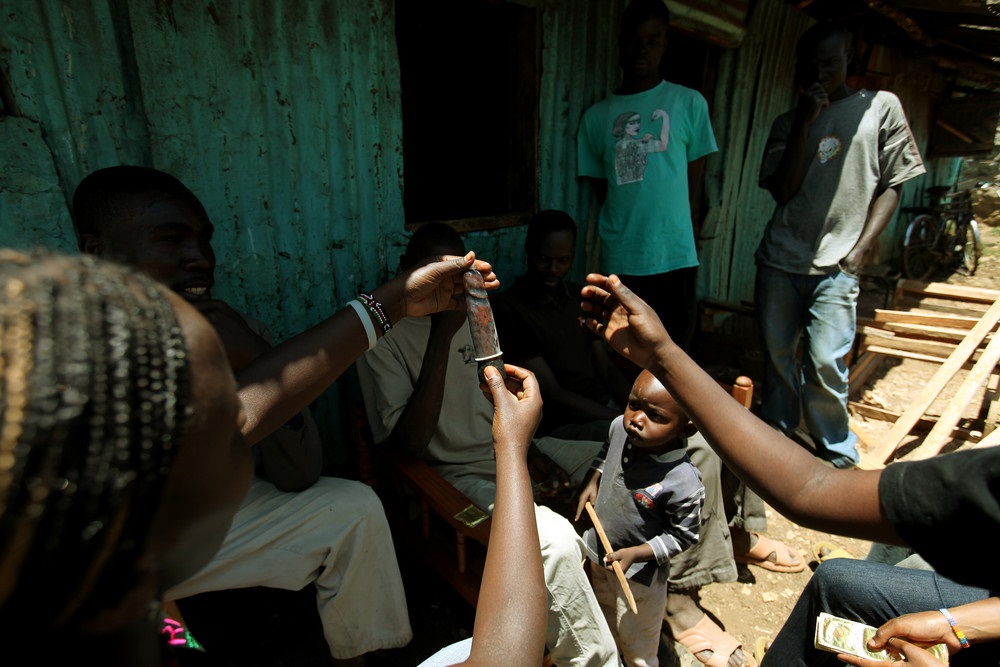
SIFPO 2: Family Health Options Kenya (FHOK)
FHOK is a leading service delivery organisation that complements the efforts of the Ministry of Health by reaching out to marginalized, underserved and vulnerable populations including young people, with information and services on voluntary SRH/FP services. In order to improve FP service delivery to adolescents, FHOK together with Sustainable Networks Project, HC3 Project and the Population Council is implementing the GREAT (Girls, Reproductive Health, Empowerment, Access and Transformation) project in Homa Bay County. The activities of the GREAT project will contribute to the objectives of the Homa Bay Family Planning Strategic Plan 2015-2019 which prioritizes: SIFPO2 Support in Kenya includes: Training health care workers and community based workers in integrated family planning and HIV service delivery for young people. Increasing access to voluntary FP services to 4,000 young people 15-24 years (including those living with HIV and AIDS) through service delivery points at static facilities, outreaches and community health workers Increasing access to high quality community-based information on family planning for young girls including those living with HIV and AIDS Supporting the sexual and reproductive health needs among young people 15-24 years (including those living with HIV and AIDS) by implementing a social behaviour change Results in 2016: 20 facility based service providers from 13 public facilities were trained to provide FPHIV integrated services both within their facilities and through outreach services 20 community members recruited to be new community health workers (CHWs) were trained on all FP methods and how to mobilize communities for FP. As a result, CHWs in focal districts now provide condoms and pills and make referrals for the other methods 20 youth living with HIV and AIDS were trained in all FP methods information. As a result, the young people are providing condoms and education on FP to their peers and making referrals as appropriate. The 20 peers were chosen in consultation with HIV community groups including DREAMS implementing partners 799 clients were served through the project The Support for International Family Planning Organizations 2 – Sustainable Networks project is a five-year cooperative agreement funded by the U.S. Agency for International Development under Agreement No. AID-OAA-A-14-00038, beginning May 13, 2014. The information provided in this document is not official U.S. government information and does not necessarily represent the views or positions of the U.S. Agency for International Development.

End gender based violence and HIV to ensure equity
18 July, Durban: Gender Based Violence (GBV) must be recognised and addressed if we are to end HIV and AIDS urged the International Planned Parenthood Federation (IPPF) and the United Nations Entity for Gender Equality and the Empowerment of Women (UN Women) at a panel during the International AIDS Conference Monday. The impact of HIV among women and girls in all their diversity is significant and alarming. Women’s greater physical vulnerability to HIV is compounded by social norms, gender inequalities, poverty and violence. Women living with HIV are also more likely to face stigmatisation, infertility, and even abuse and abandonment, contributing to their disempowerment. In East and Southern Africa, the risk of HIV among women who have experienced violence maybe three times higher In Uganda and South Africa studies found women who experienced intimate partner violence were 50 per cent more likely to have HIV than women who had not experienced violence. In many countries in Africa, getting married is among the ‘riskiest’ behaviour for women, where they may be exposed to unprotected sex with a husband who has multiple sexual partners, and to underlying power dynamics between men and women that prevent women from accessing condoms and then insisting on their use. Julia Omondi, a 24 year old advocate from Family Health Options Kenya (FHOK) highlighted the most common root causes of gender based violence and HIV, ‘I work with a group of 50 young girls like myself, called the 3E advocates to prevent girls from child marriage; support girls who are living with HIV to understand their rights, make parents and communities aware of the laws that protect girls from child marriage. We need to raise our voices to stop child marriage and turn the tide against HIV’. “Empowerment + Engagement = Equality” is a joint project supported by UN Women and IPPF implemented in Kenya, Malawi and Uganda to address HIV vulnerability among adolescent girls and young women by engaging and empowering them. Traditional leaders like the senior chief Theresa Kachindamoto from Malawi spoke of her role to change harmful gender related practices, she said, ‘Chiefs as custodians of culture should be at the forefront to end cultural practices that negatively affect people’s health like sexual cleansing (Fisi), chief blanket. My village is now a model for others and my fellow chiefs come to learn about the change I have brought to Dedtza district in Malawi.’ Nazneen Damji, Policy Advisor- gender equality, health and HIV/AIDS at UN Women, highlighted the recognition by global leaders on the importance of addressing GBV and HIV. “Violence, and the fear of violence, can play a major role in women’s reluctance to know her HIV status and seek care. Fortunately, the Political Declaration on HIV/AIDS adopted in June at the UN General Assembly and the Resolution on women, the girl child and HIV adopted at the 60th Session of the Commission on the Status of Women both call on governments to intensify efforts to end all forms of violence against women and girls, including harmful practices that contribute to the spread of HIV amongst women and girls” ‘Civil society organisations like IPPF play an important part in holding governments accountable. We shouldn’t underestimate our role as advocates to inform national, regional and global policies. If we are to address the dual epidemics of GBV and HIV we need to have progressive polices where perpetrators can be brought to justice and laws and policies uphold gender equality’ said Zelda Nhlabatsi, the executive director of Family Life Association of Swaziland (FLAS). The session was sponsored by IPPF Africa Region, UN Women and the Ford Foundation.
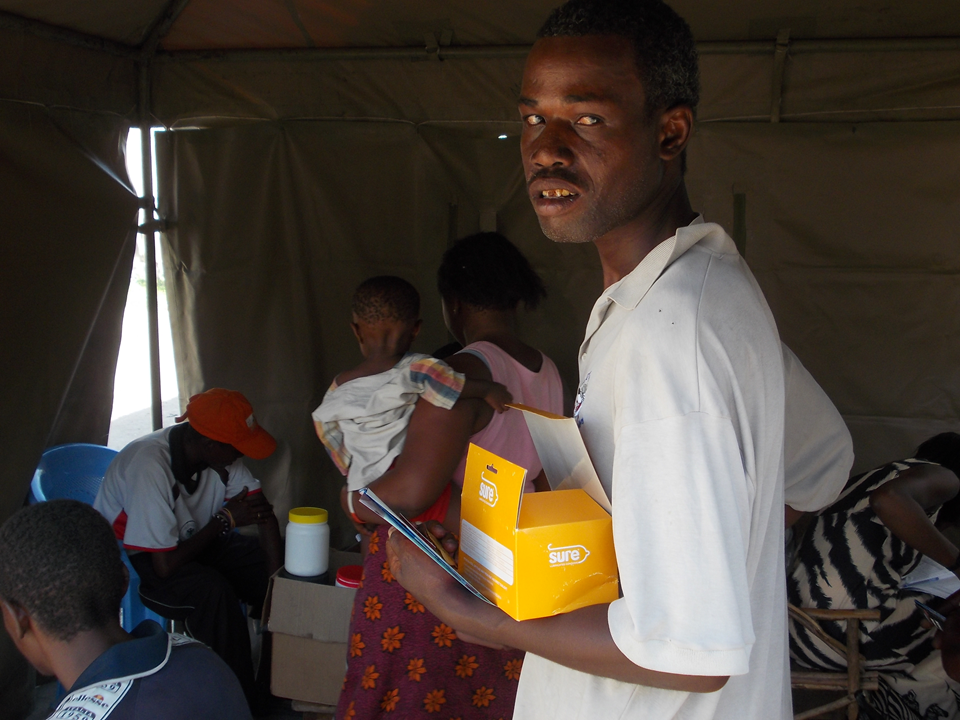
Webinar: Addressing SRH and HIV needs among people who use drugs
“Addressing sexual and reproductive health (SRH) and HIV needs among key populations: People who use drugs - the case of Kenya” took place on Thursday, 27 August 2015. The German BACKUP Initiative in collaboration with IPPF funded a three-year project, “Shadows and Light”, which addresses the sexual and reproductive health (SRH) and HIV needs of key populations at higher risk of HIV within four IPPF Member Associations (MAs). This included a focus on transgender people in India; sex workers in Uganda; people who use drugs in Kenya; and men who have sex with men in Cameroon. This webinar series is highlighting the importance of addressing SRH within HIV programmes for key populations, and how Global Fund to fight AIDS, TB and Malaria (Global Fund) is integral to their success and sustainability. Each webinar session focuses on one key population. Facilitated by IPPF and the German BACKUP Initiative, the webinars are held in cooperation with key population networks or organizations; the Global Fund; and IPPF MAs. The first webinar was held on 26 March: “Transgender People: The Case of India”; and the second webinar was held on 18 June: “Sex Workers: The Case of Uganda”. This third webinar focussed on "People who use drugs: The Case of Kenya". Besides highlighting the importance of SRH and HIV linkages including integrated service provision for people, the webinar aimed to: introduce the SRH components of the consolidated WHO guidelines on HIV prevention, diagnosis, treatment and care for key populations; discuss the main barriers and challenges people who use drugs face to access SRH and HIV services; understand how addressing SRH within HIV programmes and services funded by the Global Fund is possible; and learn from country-level experiences about successful interventions, challenges and recommendations. Speakers included Ruth Birgin from the International Network of People who use Drugs (INPUD), Lilian Kayaro from Family Health Option Kenya (FHOK), and Mauro Guarinieri from The Global Fund to Fight AIDS, Tuberculosis and Malaria. Background about Kenya: In Kenya the HIV epidemic has high prevalence among key populations including people who use drugs. There are clear indications of both rapid increases of drug use and HIV prevalence amongst this community, which was reported as 18% in 2011 (UNAIDS 2012). Government services are seeking to respond to this through the recent introduction of harm reduction interventions. These however face opposition from conservative and religious groups within Kenya, illustrating the stigma these populations face, and corresponding barriers to service access. Family Health Options Kenya (FHOK) have clinic sites in coastal areas of Kenya where this concentrated HIV epidemic is focussed, and so well placed to respond. In this first year implementing period, FHOK commenced the project with orientation meetings for the staff team both at Head Office and at the Coast Region Office and clinic. The project is building on a call for community partnership to increase access to harm reduction counselling and support for people who use drugs. The presentation slides are available to download.
Integra Initiative
Integra is a 5-year research initiative in Kenya, Malawi and Swaziland. It aims to reduce HIV infection, HIV-related stigma and unintended pregnancy. IPPF implements the Integra Initiative with support from the Bill and Melinda Gates Foundation and in collaboration with the London School of Hygiene and Tropical Medicine and the Population Council.
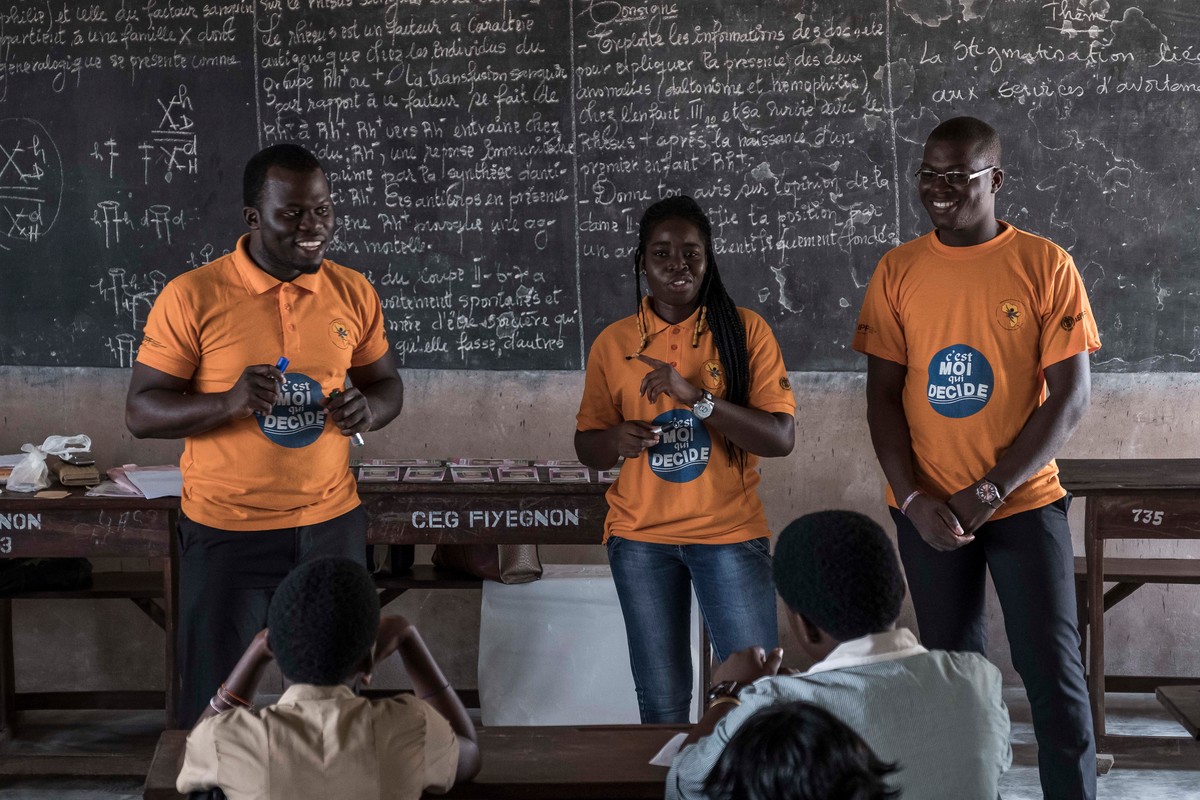
IPPF funds youth-led projects to tackle abortion stigma
As part of our work in tackling abortion stigma, IPPF awards small grants to young people to create projects that would tackle the issue of abortion stigma in their communities. In 2015, small grants were awarded to promising projects submitted by young people in Ghana, Palestine, Spain, Macedonia and Nepal. In 2017, a further six grants were awarded to young people in Guinea, Kenya, Nepal, Puerto Rico, Sierra Leone and Venezuela. In 2019 five more grants were awarded to youth-led projects in Albania, Colombia, Nigeria, Spain and Tanzania. These documents give more information about what these projects set out to do, their methods and the results.
Pagination
- Previous page
- Page 2







